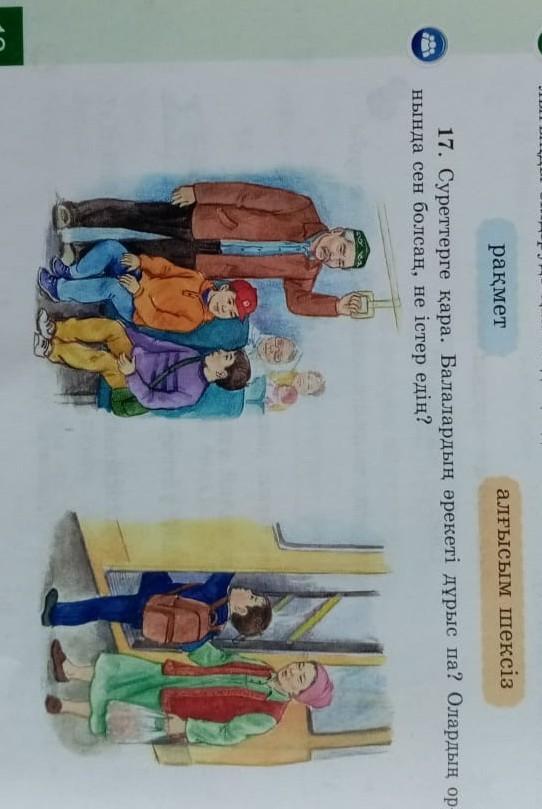Предмет: Қазақ тiлi,
автор: zorotop09
Помогите,пожалуйста
Приложения:

amangeldysafya:
Жоқ, олар дұрыс емес. 1 сурет: мен тұрып, атама жол берер едім 2 сурет, Мен алдымен әжемді сағындым алдында содан кейін өзім өтер едім
Ответы
Автор ответа:
0
Ответ:
Бұл жерде балалардың әрекеті дұрыс емес. Себебі олар үлкен кісіні құрметтемей тұр. Әр адам үлкен кісілерді құрметтеуі қажет ол бізге үлкен үлгі өнеге егер осы қасиетті балаларға дарытсақ олар үлкен кісіге құрметпен қарайды.
Похожие вопросы
Предмет: Английский язык,
автор: XxCatExX
Предмет: Русский язык,
автор: дик32
Предмет: Русский язык,
автор: Никита200000000
Предмет: Музыка,
автор: sonickibap6prxn
Предмет: Математика,
автор: tupica7